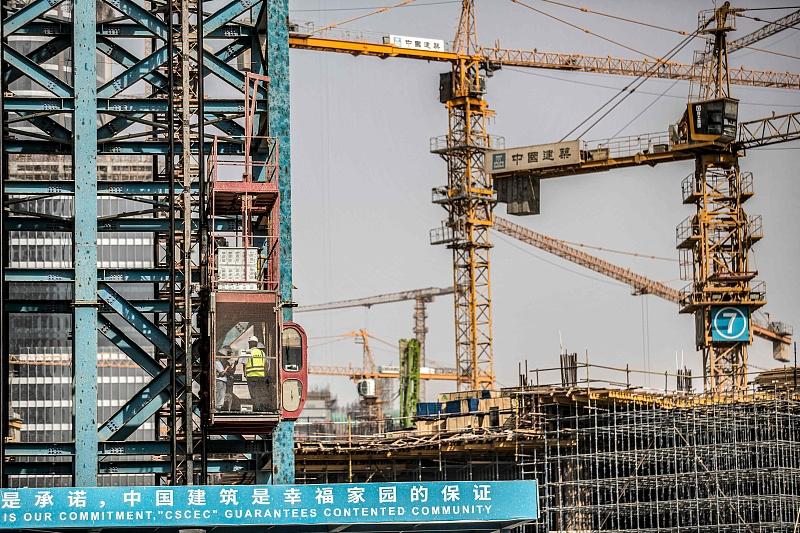Closer China-Arab partnership key to mutual prosperity
- By Tom Fowdy
 0 Comment(s)
0 Comment(s) Print
Print E-mail China.org.cn, December 9, 2022
E-mail China.org.cn, December 9, 2022

People work at the construction site of a project in business and finance district, some 45 kilometres east of Cairo, Egypt, Aug. 3, 2021. [Photo/cfp.cn]
The first China-Arab States Summit and the China-Gulf Cooperation Council Summit will be held in Riyadh, Saudi Arabia, this week, with 14 heads of state from across the Middle East region attending the meetings. Described by an Arab diplomatic source to CNN as a "milestone" in China's relations with the Middle East, it is the largest summit of its kind held between Beijing and the region, and undoubtedly opens a new chapter.
Despite rising challenges in the global environment, China's relationship with the Arab world is significantly deepening. This is because the two parties share overlapping interests in economic, strategic and security areas, leading to the shared understanding that their partnership is critical for ensuring mutual prosperity.
On an economic level, China now constitutes one of the world's largest energy importers. As a major global economy, the country's market size and potential give new opportunities for Arab countries to maximize their exports into a new market. In addition, as climate considerations exert pressure on the global economy to shift away from fossil fuels, the Chinese market has become strategically important for Middle Eastern countries to make alternative investments and acquire new forms of revenue. Highly energy dependent economies such as Saudi Arabia, the United Arab Emirates and Qatar have long been investing in a process of economic diversification.
In addition, the intention of both sides to deepen trade integration stems from a mutual interest in upholding globalization and sustaining the global free trade order. China and the Arab world understand that greater cooperation is essential for continued prosperity. Both sides, therefore, have an interest in advancing free trade negotiations, as well as multilateral projects such as cooperation under the framework of the Belt and Road Initiative.
Moreover, China's foreign policy is built on the principle of respect for national sovereignty and non-intervention in the affairs of other countries. In recent years, widespread sentiment has been established throughout the Middle East that Arab countries cannot rely on Western countries, and that a shift in the global geopolitical context toward multipolarity gives nations the opportunity to maximize their diplomatic options and attain greater strategic autonomy. Therefore, partnership with China becomes an important geopolitical safeguard which allows Arab states to leverage their own position and maintain sovereignty.
Over the past few years, China and Arab countries have reached multiple consensuses on issues like human rights, democratization of international relations, and building a multipolar world order. Additionally, many Arab countries have expressed an interest in joining multilateral organizations such as the Shanghai Cooperation Organization or BRICS.
When this is taken into consideration, the broader geopolitical context is driving both China and the Middle East toward a closer partnership. The world is at a crossroads given the rise of unilateralism and anti-globalization. Against this backdrop, countries should respond by deepening engagement to keep globalization open on their own terms. China-Arab cooperation is just one example in this regard.
Tom Fowdy is a British political and international relations analyst and a graduate of Durham and Oxford universities. For more information please visit:
http://www.formacion-profesional-a-distancia.com/opinion/TomFowdy.htm
Opinion articles reflect the views of their authors, not necessarily those of China.org.cn.
If you would like to contribute, please contact us at opinion@china.org.cn.





